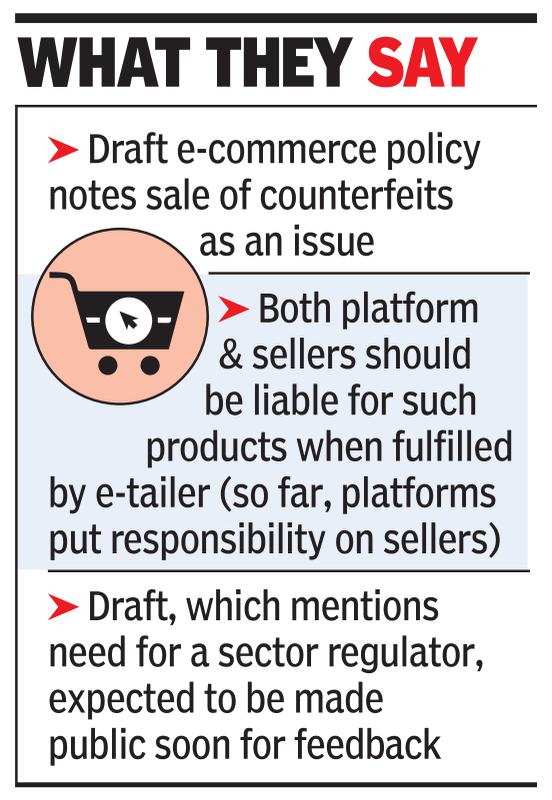Draft e-tail rules target imports, eye growth for all
The draft has made other proposals for the online retail sector, which is dominated by Amazon India and Walmart’s Flipkart. These include a proposal that only one or two e-commerce firms should not have a digital monopoly in the sector and, as a consequence, exercise control over a big part of the consumer data repository. This would benefit consumers and local startups, according to the draft.
The government has also highlighted that growth in e-commerce should not “unnecessarily disrupt” the offline retail trade, which provides jobs and livelihoods to millions. There should be hand-holding to bring offline sellers online, it has recommended.
During the lockdown, e-tailers were upset that while offline stores were allowed to sell all goods, online retail was allowed to only sell essentials like medicine and grocery. Despite signs of lines blurring between online and offline retail with growing omni-channel plays, small traders have been complaining to the government over the advantageous position of e-tailers, largely due to discounts they offer to consumers.

On matters related to imports and building integrated systems, the draft noted, “Any non-compliant e-commerce entity/platform will not be given approval to operate in India. Necessary mechanisms may be put in place by ministry of electronics and information technology (MeitY) and the other government departments concerned. E-commerce regulator may identify such platforms and directly deny access to such platforms.”
This comes when e-tailers are being asked by the government to ensure their products show ‘country of origin’ on a priority basis amid border issues with China in Ladakh, as TOI reported in its Friday edition. E-commerce executives said some of the proposals would add another layer of compliance burden on them.
Independent sellers, on the other hand, are largely concerned over their survival in the coming months than long-term policy changes. According to legal experts, the draft policy has largely stuck to the country’s broader consumer data policy of keeping it in India, while allowing some elements to be mirrored outside.
“Tracking imports for private brands is easier, but that’s early double-digits of volume on e-commerce platforms. A system integrating the RBI and customs would be complex. We would have to highlight this concern once the draft is public,” an e-commerce executive, aware of government deliberations, said.
Another executive said this would end up regulating sellers instead of the marketplace. “Sellers bring their own goods according to their deals with suppliers. This would put more restrictions and liability on them than the platform, which is connecting the buyer and seller,” he added.
“Some of the issues like hand-holding small sellers are already being addressed by some e-tailers. The whole objective, I think, is to push a lot of products that can be manufactured here. The way it did for smartphones, which are now assembled in India,” said Satish Meena, senior forecast analyst at Forrester, a market research firm.
Flipkart, Amazon India and Snapdeal spokespeople did not respond to TOI’s query.
Among other proposals, the draft noted the sale of counterfeit products as an issue in e-commerce and that both platform and sellers would be liable for such products when it is fulfilled by an e-tailer. So far, platforms put this responsibility on sellers. The draft, which mentioned a need for a sector regulator, is expected to be made public soon inviting feedback from stakeholders.
Source link




